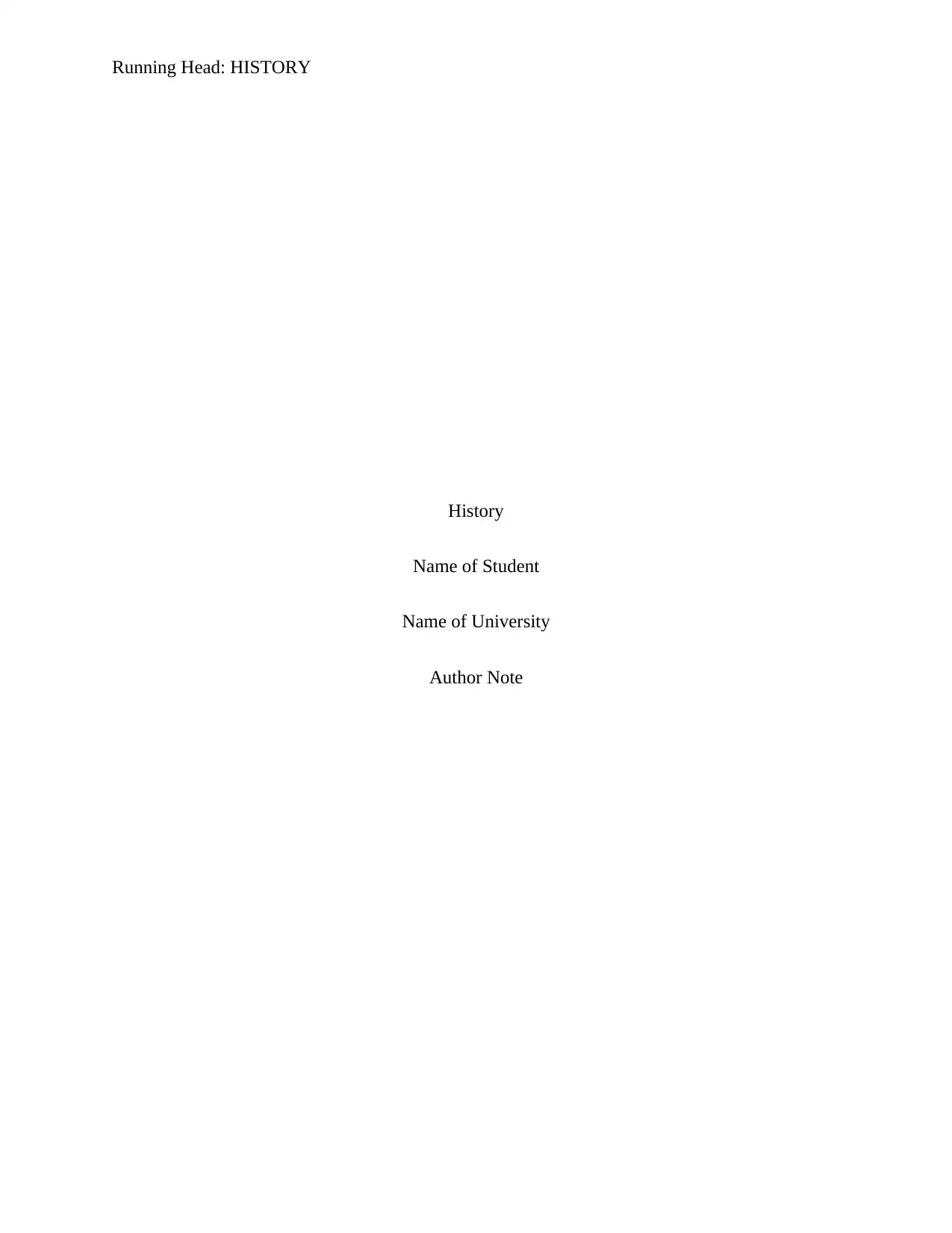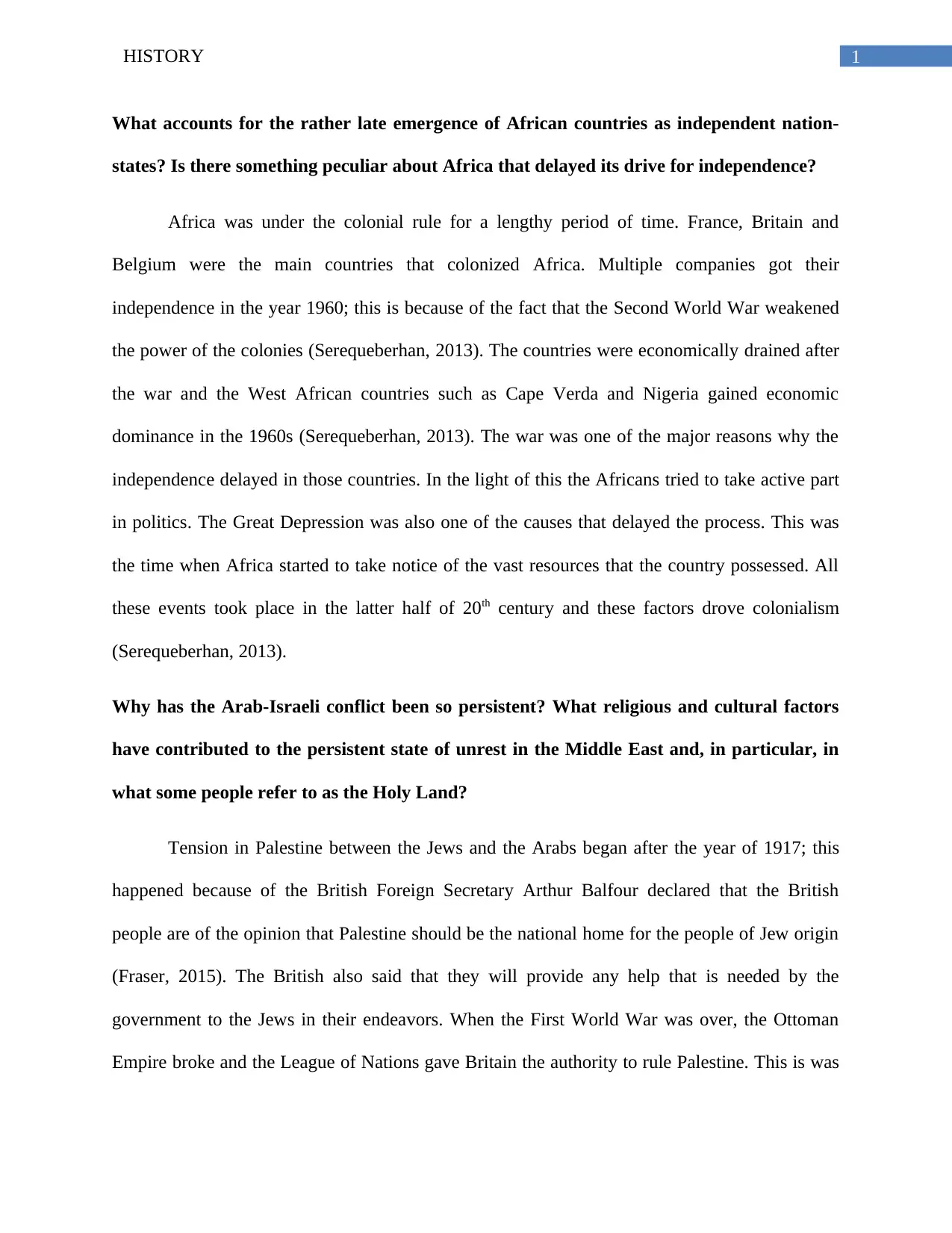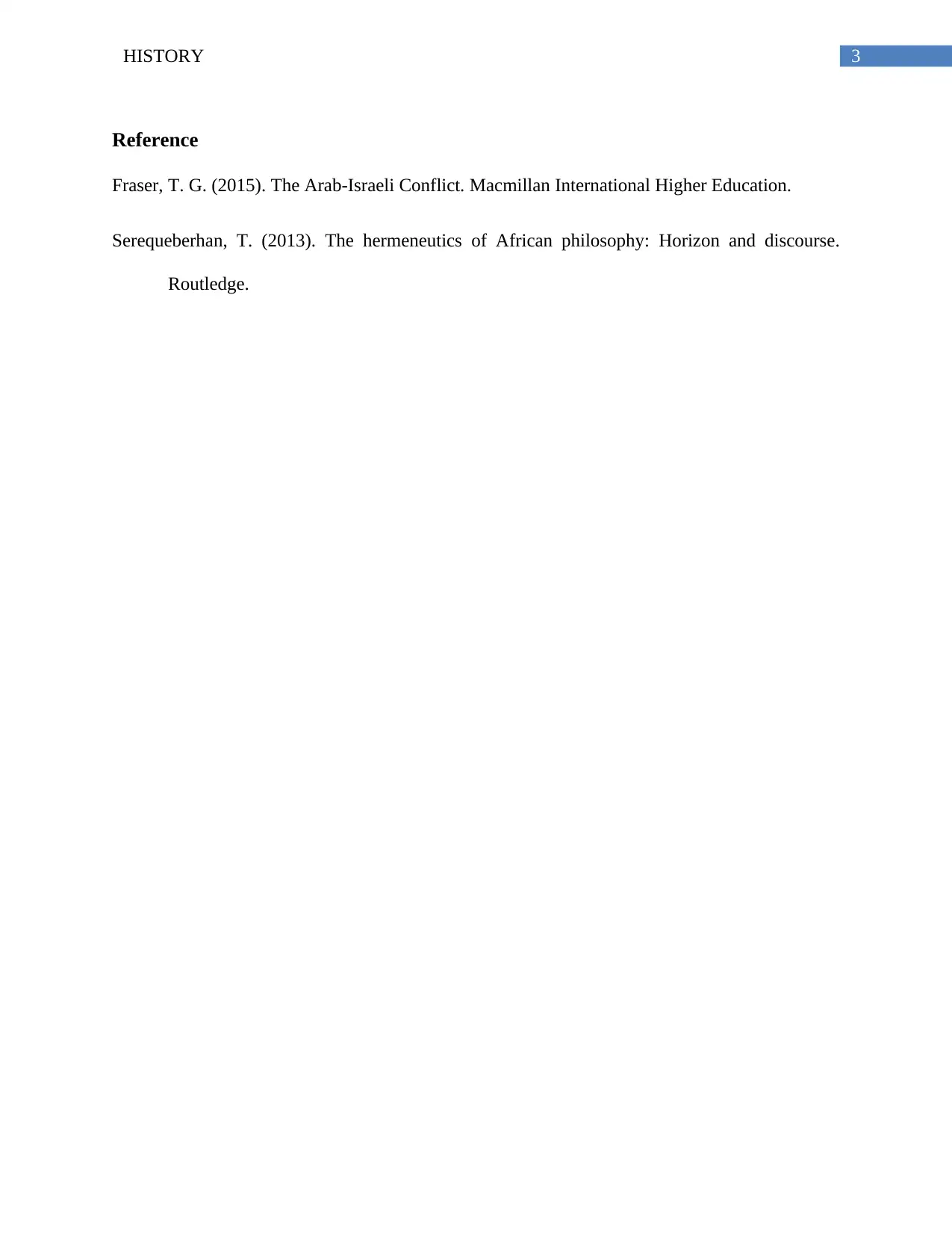History Assignment: Colonialism and the Arab-Israeli Conflict
VerifiedAdded on 2022/10/09
|5
|437
|11
Homework Assignment
AI Summary
This assignment delves into two key historical topics: the Arab-Israeli conflict and the rise of colonialism. The assignment examines the factors that led to the delayed independence of African countries, highlighting the influence of World War II and economic challenges. It also analyzes the origins of the Arab-Israeli conflict, tracing its roots back to the Balfour Declaration and the subsequent political tensions. The assignment provides a concise overview of the historical events and the impact these events had on the regions involved, including the role of the British Empire. It concludes with a summary of the key factors driving the conflict and the challenges faced by the countries involved.
1 out of 5








![[object Object]](/_next/static/media/star-bottom.7253800d.svg)